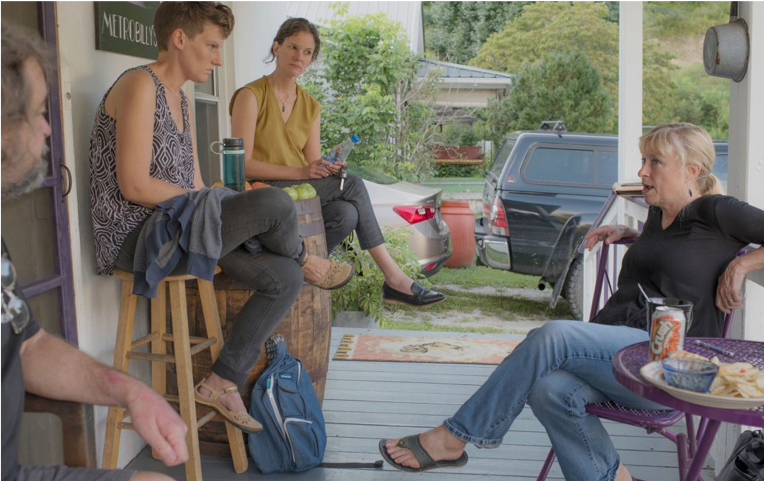Martin County Kentucky Residents Say "Enough" To Expensive Unsafe Drinking Water
Mary Cromer, Deputy Director and Environmental Attorney - Appalachian Citizens’ Law Center
Nina McCoy, a retired teacher and chair of Martin County Concerned Citizens (MCCC), has not trusted her drinking water for decades. In fact, residents in Martin County, Kentucky, have been warned in water quality reports of carcinogens and nervous system disruptors for the last 20 years with no recommendation of how to remedy the problems.
The county’s water system is so dilapidated that it cannot provide safe, reliable drinking water to its residents. Unfortunately, these issues are not unique to Martin County. More than a century of coal mining in Central Appalachia has polluted ground and surface water and destroyed private wells, making public water supplies a necessity. But those public water supplies have been neglected and mismanaged, as the boom and bust cycles of the coal industry have left little money for investment in public infrastructure. The region’s public water systems regularly violate the Safe Drinking Water Act and require boil water advisories, but the situation is especially dire in Martin County.
Here’s the real kicker: Despite continued lack of access to safe drinking water, Nina and her fellow Martin Countians pay some of the highest water bills in Kentucky. This is in a county where 40% of the population makes less than $25,000 per year. Many residents simply cannot afford their water bills. Frustrated at the lack of action around water issues in her community, Nina founded the Martin County Concerned Citizens (MCCC) to hold local and state leaders accountable.
Mary Cromer of Appalachian Citizens’ Law Center and Nina McCoy of Martin County Concerned Citizens’ at a Kentucky Public Service Commission hearing
When conducting interviews and tap water tests last year, Nina and local water organizer Ricki Draper found that 92% of the households surveyed do not use tap water for drinking and cooking. Instead they buy bottled water. So, many residents pay high water bills for undrinkable water, and then also pay for bottled water for drinking and cooking. It is an untenable situation.
In September 2019, Appalachian Citizens’ Law Center (ACLC) and MCCC released a report, “Drinking Water Affordability Crisis: Martin County, Kentucky,” which looked at the burden of increased water rates for Martin County residents. The report’s conclusion was clear: residents of Martin County could not afford additional rate increases. The money to fix the Martin County water system would need to come from somewhere else.
As ACLC’s Deputy Director, I have represented MCCC since 2017. My work includes both direct legal representation and helping community members advocate to ensure that the water system is fixed, water service is affordable, and the district’s customers are respected. ACLC and MCCC have worked together over the past three years to build working relationships with groups working on similar issues throughout the country. We have also developed working relationships with public health and infrastructure experts in the state. Because of the relationships that our groups have built, a study is underway to test tap water throughout the county, which has never been done before.
ACLC’s Mary Cromer, MCCC’s Nina and Mickey McCoy, and Ricki Draper of LiKEN, a nonprofit based in Lexington, KY, meet to discuss water quality issues in Martin County.
ACLC’s legal representation of the group before Kentucky’s Public Service Commission (PSC) has proven effective. In 2017, we moved to intervene in the PSC’s ongoing investigation of the failing water district. As intervenors, we were able to conduct discovery and question witnesses and learn more about the reckless financial mismanagement of the district. As we began to shine a spotlight on the abuse that was occurring, the entire board resigned and the district manager was terminated. Rooting out the bad actors was a necessary first step. But just one month after the board resigned, a crisis hit. In January 2018, as temperatures plummeted, the system experienced a series of cascading failures that resulted in two weeks of water shut offs for most of the county. During those two weeks, the new board, which had inherited nearly $1 million in debt, applied to the PSC for a nearly 50% emergency rate increase, claiming that that much was needed to stabilize the system and prevent its collapse.
Nina McCoy leads a Martin County Concerned Citizens meeting in Inez, KY.
We intervened in that proceeding as well and dug deeper into the district’s long history of waste and abuse, bringing those to light at hearings that were held every 90 days. We knew that that wasn’t enough, however. It was clear that regardless of the past history, the district would need significantly more money to fix what had been broken. We began working with state and federal agencies and policy makers to help the district find grant funding. We also began working on an affordability analysis designed to highlight for the PSC and funding agencies the simple fact that the costs to fix the broken system could not fall on the ratepayers of Martin County, they simply could not afford it.
We modeled our affordability analysis on work done by Roger Colton in Michigan and Baltimore. With Colton’s excellent work as a guide, we were able to reach out to academics and policy leaders from Kentucky and beyond who provided their expertise and guidance in designing and preparing our report for free.
The report had a big impact. The PSC heard our calls for a stay on rate increases. On November 15, 2019, in a 45-page Order citing the report, the PSC ordered the water district to hire an outside company to take over all daily operations, but to do so without a rate increase. While both MCCC and ACLC are wary of allowing private, for-profit companies to run local utilities, the situation in Martin County is so dire that we believe that this company’s expertise may be the only thing that can prevent this water district’s collapse.
ACLC and MCCC are continuing to work with experts and officials at the state level to find ways to rebuild the water system without rate hikes. The groups are also watchdogging the private management company to understand each improvement in the system and to ensure that the company’s spending is in check. This watchdogging is even more critical during the pandemic. As soon as social distancing requirements kicked in, MCCC and ACLC worked with the district to set up its public meetings online, distribute all financial and operational reports to county residents for review prior to the meetings, and ensure that residents had an opportunity to ask questions publicly during each meeting.
It will be a long road before Martin County has safe, affordable drinking water, but thanks to the tireless work of Nina McCoy, MCCC, and ACLC, there is hope that this community will see meaningful change.















